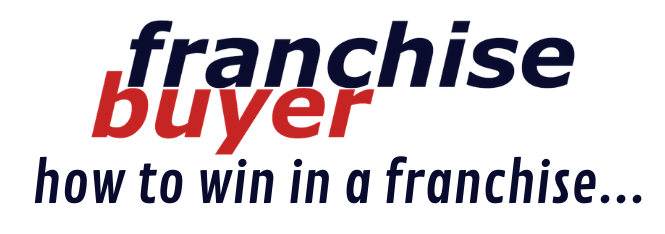
2017 Top Five Latest Trends in Franchising
Today, in 2017, many changes in the worldwide economy, in business regulation, and in the demands of both the investors and the consumer market have inspired new trends in franchising, making it even more promising as a viable business model for long-term success and sustainability.
1. Smaller and more affordable franchising/licensing choices – Without the safety net of a job that used to be a “given” in most economies, more and more workers are turning to entrepreneurship, taking responsibility for their own financial destinies rather than wallow in the comfort and security
traditional employment provided.
Of course, this venture into entrepreneurship involves a certain amount of risk. In the past, the initial investment was often so steep, would-be entrepreneurs were automatically excluded from franchising or licensing due to financial constraints.
Today, however, there are many options that involve smaller start-up investments. In fact, with all the possible fees associated with becoming a franchisee or licensee, such as build-out and inventory costs, finding a company with a single, initial, and all inclusive investment is a trend budding entrepreneurs are finding advantageous in their relatively low cost and quick ROI.
Engage & Grow, a rapidly succeeding international firm specializing in the latest techniques for facilitating employee engagement, currently offers licenses that include training, materials, support, use of company collaterals, and networking assistance, all (at press time) for fewer than $10,000.
According to Engage & Grow Founder and CEO, Richard Maloney, “Your investment will be returned with your first client.” Engage & Grow also offers incentives such as waiving the 18-month licensing renewal fee if a licensee achieves at least three new clients in the prior 18 months. Furthermore, when asked where a licensee was required to have an office, he simply responded, “Where is your computer? That’s your office.”

2. True niche franchises – From specialty dog-food to ordering alcoholic beverages (where legal) on a phone app, niche products and services have
the potential to generate big bucks if they capture the hearts, minds and wallets of a dedicated consumer base.
Targeting the masses can indeed be profitable, but niche businesses cater to highly defined markets that are often overlooked, underserved or disenfranchised by larger competitors. With an abundance of available outlets, resources, and online platforms, identifying and reaching a target audience has never been easier for small business owners.
If you are ready to become the big fish in a small pond, you need to decide whether your passion is unique enough to turn a profit. Urban Clean, for example, capitalized on the frustrations many offices have with the lack of personal attention most commercial janitorial companies provide, as well as the common phenomenon of starting out strong, and slacking off once the account is well-established. In response, Urban Clean offers something unique to clients: Reports of which services have been provided, photos of service people, and a guarantee of two weeks of free service if clients aren’t satisfied.
These niche franchises truly offer unique and client-valued services that lead to ultimate franchise success.
3. International expansion – Regardless of world affairs or political discord, world consumers still have a hankering for Westernized products and services. While most of these American-born, franchises tend to be fast-food, such as McDonald’s, KFC, Taco Bell, and the like, many countries are noticing other successful concepts originating from the western world. And they want a piece of the action.
Take ProfitPlus, for example. ProfitPlus is unique amongst its peers by first, recruiting entrepreneurs familiar with the local business customs, laws, procedures, and languages. Then, once established as a ProfitPlus franchisee or Master Licensee (a franchisee/licensee who manages a certain country or territory rather than one unit), the Advisor (franchisee) assists business owners in growing their profits, improving their cash flow, and adding overall business value. They provide an unlikely, yet successful blend of bookkeeping and business planning…and they are expanding globally.
4. Education not motivation – I tend to cringe when people call me a “motivational speaker.” Why? Because all motivational speakers tend to do is encourage people to do stupid things faster. No, my goal is to educate those who have the entrepreneurial spirit and the guts and the drive to be successful. When attending, a conference hosted by a franchisor, keep in mind their ultimate goal is to sell you a franchise.
However, there are exceptions. Some franchises have already reached such a pinnacle of success; the owner has decided to give back to the community by educating them on how to realize their business goals and dreams. Look, if I sold another franchise, sure, I’d be happy, especially, since ActionCOACH business coaching has an extensive discovery process to ensure both our success as partners. However, my scope of passion has changed over the years.
Yes, I am as committed to ActionCOACH and its success— the success of our coaches and Master Licensees—as ever. Now, however, my time is also spent in educating mass markets—not only in franchising, but real estate, stock trading, you name it. I do it through books and my seminars.
5. More Part-time and lifestyle-based franchises – Starting a part-time franchise is a great opportunity that can help aspiring entrepreneurs test the waters of business ownership rather than diving right in. There are many reasons franchisees seek these part-time or lifestyle-based franchises.
Many want to have more control over their schedule, work at their own pace, or possibly earn additional income to their fulltime job. It turns out that women are more likely to choose the part-time franchise due to their desire to balance work and home life. Also, people with young families and those choosing to be stay-at-home parents fall into this category.
One last caveat—Do your research, and do it well. Discuss it all with your family, business partners, counsel…everyone you feel will be affected by your decision. Once you are 80%--not 70%, not 90%, certainly not 100%, of deciding to either go into business for yourself or not, let that 80% be your guide. You won’t ever be 100%, that is until you go for it.





